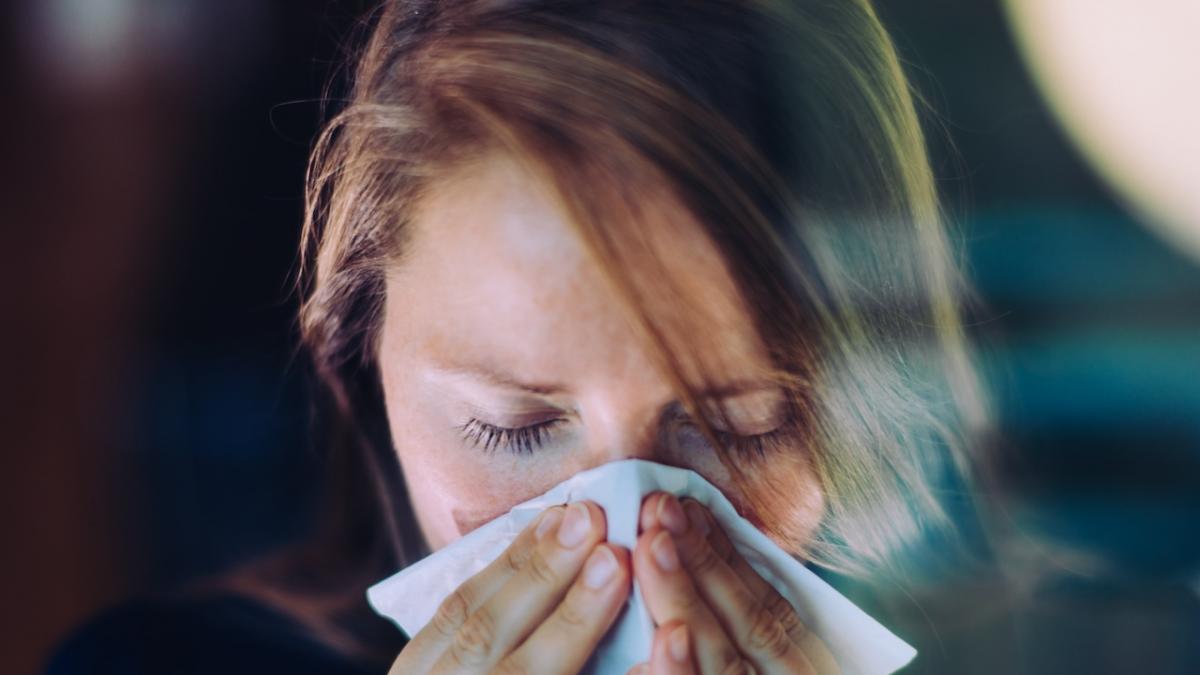
One of the most common popular beliefs about the flu and colds is that they are illnesses caused by cold, which is why cases accumulate during the winter. In fact, cold is not the culprit of these diseases, although it cannot be said to be completely “innocent”, since its presence has a certain impact that must be taken into account.
Is this the flu or a common cold?
– Colds come on gradually, while flu comes on suddenly.
– Influenza viruses are specific every year, and cold viruses have three peaks each year; early autumn, mid-winter and spring.
– It is very rare to have a fever with a cold, but it is a common symptom of the flu.
– Effects of nasal congestion, sneezing or sore throat. They are common with colds but not always present with the flu.
– Flu viruses usually last 3 to 7 days, while cold viruses can last 8 to 10 days.
– Headache. It manifests violently and intensely during an attack of the flu, but is very rare during an attack of a cold.
It is neither infected by a cold nor cured by vitamin C: different myths
It is said that when you have a cold, you should drink more water, take vitamin C, flu medicine, honey…but is all this true?
Cold, the root cause of cold: Although it is commonly believed that exposure to cold temperatures can cause you to catch a cold, this is not the case. Walking barefoot or sleeping with wet hair does not cause a cold: the root cause is a virus. The Spanish Society of Internal Medicine (SEMI) states that the cause is rhinovirus, respiratory syncytial virus, parainfluenza virus or metapneumovirus.
Taking vitamin C can help prevent: The belief that vitamin C can cure colds dates back to ancient times, but there is no scientific evidence that this is true. There is no doubt that a good diet rich in vitamins, minerals, etc. can make your body better able to cope with any health problem.
Honey is good for soothing throat and relieving cough: This is a classic, although it hasn’t been proven to actually relieve pain. Mixing with milk or lemon can produce subjective relief. What may help you is propolis, another bee product. In addition to having some anti-inflammatory properties, it also fights bacteria, viruses, and fungi.
It is necessary to take antibiotics: Neither necessary nor beneficial. In fact, antibiotics fight bacteria, but not the viruses that cause colds and flu. They also won’t cure you faster, and you must use it in moderation, as improper use can destroy its effectiveness and lead to bacterial resistance. This means that if you really need them, they won’t work for you.
Drinking fluids can help improveA: While this is something often recommended, there is no scientific basis for this claim. In addition, it must be taken into account that the absorption of fluids comes not only from the drink, but also from the moisture contained in the food.
Tips to prevent colds
– Wash your hands frequently and avoid touching your eyes, nose and mouth before washing hands.
– Cover your mouth and nose when coughing or sneezing.
– Avoid or reduce contact with affected people.
– Do not share glasses or cutlery.
– No smoking allowed.
– Avoid gatherings in enclosed or unventilated spaces.
Treatment for cold
– Analgesics: used to relieve fever, sore throat, headache, and general discomfort.
-Decongestants: They cause vasoconstriction of the nasal mucosa and thus promote decongestion.
– Antihistamines: They produce a strong vasodilatory effect and are often used to treat respiratory processes associated with nasal congestion, tearing and sneezing.
– Antitussives: Their use is limited to cases where dry cough affects sleep, prevents rest and irritates the respiratory tract.
– Mucolytic agents: they reduce the viscosity of bronchial mucus and facilitate its discharge.
– Expectorants: they increase the volume of bronchial secretions and stimulate their expulsion mechanisms. They are often used together with mucolytics.
Each case has its own specificities and the procedures that must be followed by each patient must be indicated by a health professional.
